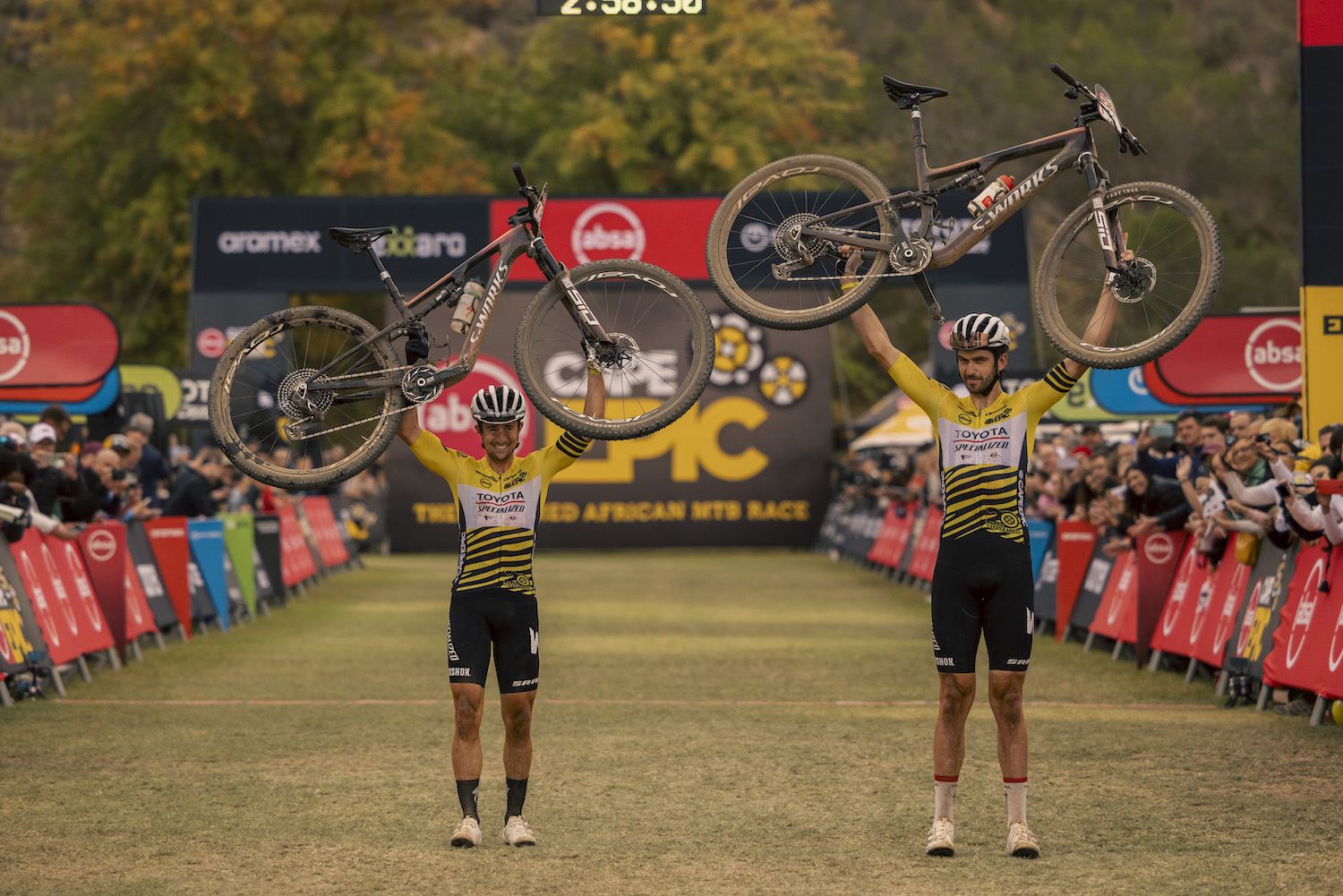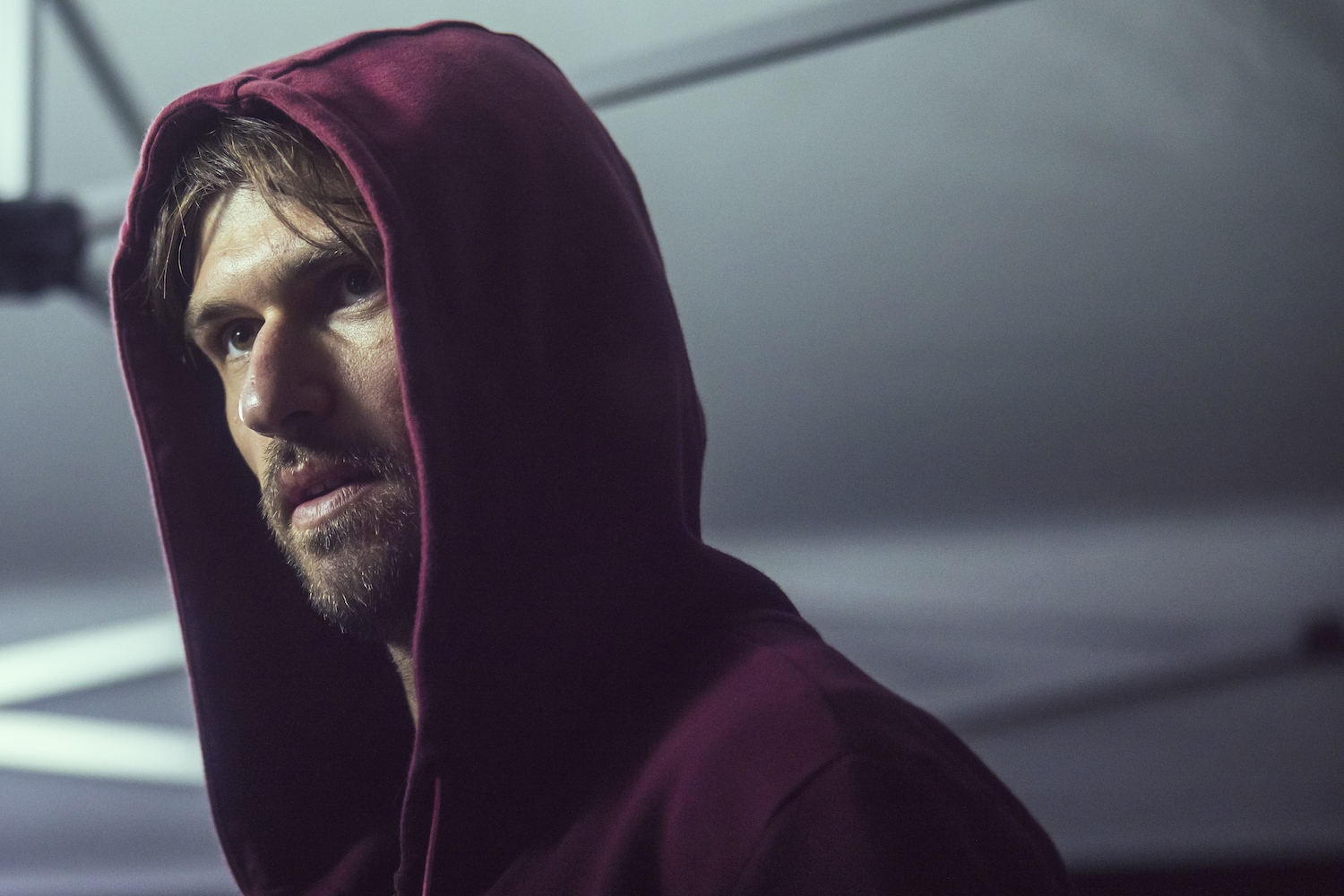Matt Beers became the first South African to win the Absa Cape Epic three times when he and his Toyota Specialized Ninety-One teammate, Howard Grotts of the USA secured a somewhat clinical victory in the 20thedition of the race. In this interview, Beers explains how he changed his training for this year’s Cape Epic – and how it paid off.
By Sean Badenhorst
Three Absa Cape Epic wins, Matt! Only Sauser, Platt, Kulhavy, Sahm, Luthi and Langvad have achieved this. How does it feel to be among Cape Epic royalty?
It does feel crazy. Those are all riders I look up to, especially Kulhavy. He was my inspiration when I watched the Cape Epic for the first time. Seeing a big rider, a guy that has similar attributes to me – big, power rider… He made me believe that I could win this race. The Cape Epic has usually been dominated by small guys, so he was definitely an inspiration for me. To be among those names is kind of surreal. I would have never thought I could win it once, never mind three times.

You look leaner than ever before and you mentioned in an interview that you had trimmed some weight. How much weight did you trim and what did you do to achieve this?
That was a big focus this year, especially with the amount of climbing in this edition. Also, knowing that Howard is tiny and strong climber. I dropped around 2.5-3.0 kilos. But my power stayed the same. That’s quite a massive power-to-weight increase. That was achieved with Mike Posthumus. He’s not my coach, John Wakefield is my coach, but Mike does tailored nutrition plans to complement my training plans from John. We kept a check on weight every two weeks and also did skinfold tests, which is super important because you don’t want to go into the Cape Epic like a skeleton. It was important to be on the edge of being really lean and still strong. In simple terms, my eating was periodised with my training. If I had a big day of training, I had a big day of eating. On easier training days, my eating was toned down. Fuelling on the bike is super important as well as not overeating after training sessions.
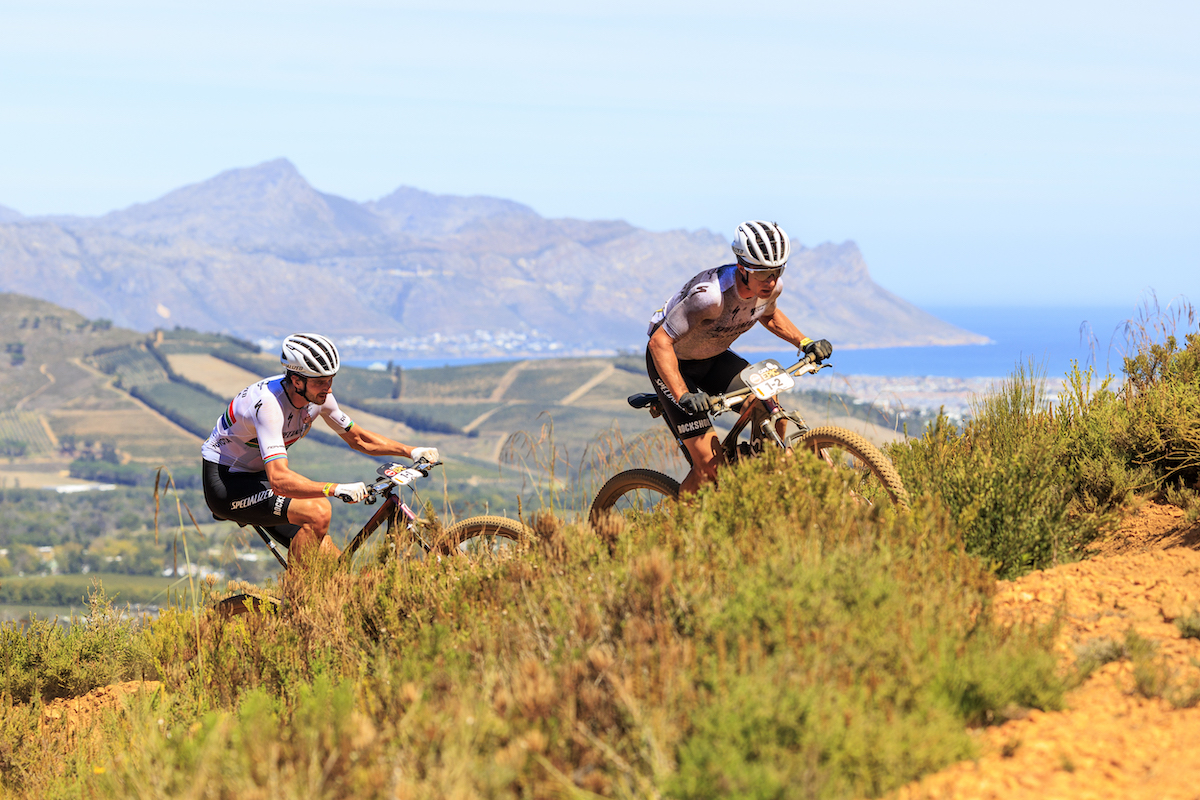
Based on your dominance on the climbs, it seems as if your weight trim was successful. Do you have any stats that confirm this?
I also focused a hell of a lot on climbing in my training. Anyone who follows me on Strava will have seen that. I climbed many days over 3000m, which I do believe if you practice something specifically, you obviously get better at it. The good thing is that climbing better also increases your flat-riding power production too. I just spent every waking minute climbing – as much as I could anyway. If it was a five-hour ride, it had to be 3000m of climbing. If it was a four-hour ride, it had to be minimum of 2500m of climbing and three hours had to be 2000m. Eventually you become pretty efficient at it. Obviously the drop in weight helped. I could feel it. I went uphill with less power required, which means I’m burning less energy and there’s less fatigue. It all adds up. My power stayed exactly the same but my 2.5kg weight drop made a massive difference. I could see it on markers I had in training from previous years.
Will you try and maintain this weight or was that specifically for the Cape Epic?
I think I’m at a pretty maintainable weight. I have found a pretty good rhythm with training and eating. I can keep training at a high volume and be happy with what I’m eating and not starve myself, which is the biggest key. I’m still eating a hell of a lot; it’s just eating at the right times and correctly for the training. It might fluctuate a kilo or so for the rest of the year, but I just need to stay disciplined and not lose too much focus.
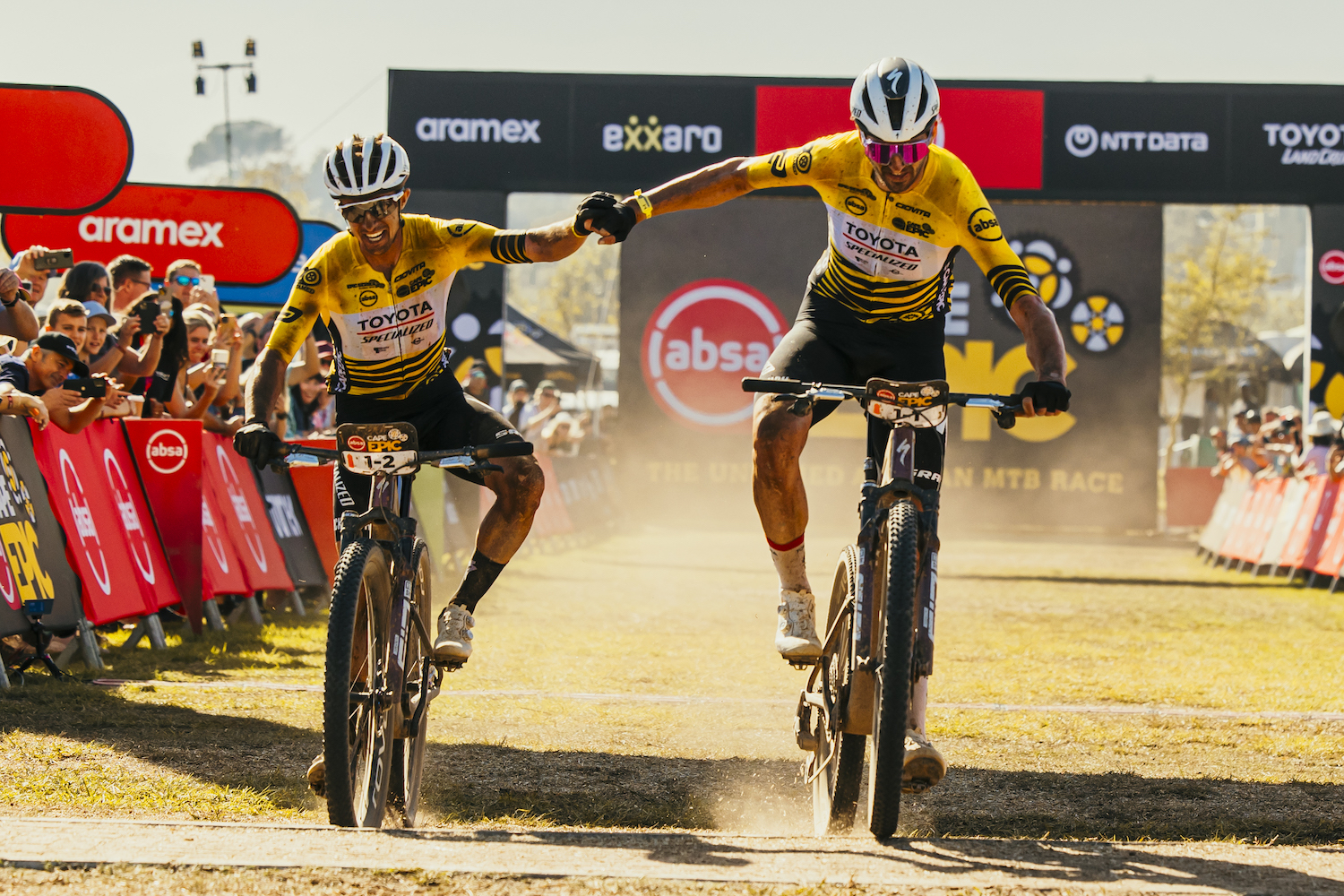
The timing of the new Specialized Epic 8 was spot on! What do you enjoy most about this new edition of the iconic model?
I was very happy to get this bike right before the Cape Epic. I think it made a big difference to us. The new bike is really good. The confidence on the descending, the plushness, the handling. Not having to think about sprinting. You just put down the watts and the Flight Attendant (Rock Shox’s intuitive automatic suspension adjustment) does everything else for you. The handling is massive, especially with me riding an Extra Large with a steeper seattube and slack headtube. The bike is definitely more nimble on switchbacks. Getting a XL bike through switchbacks isn’t easy and this year at the Cape Epic we had the possibly the most switchbacks in any race I have ever done! There must have been a couple hundred switchbacks in total. Chasing Nino on descents is never easy, so having a bike that gave me more confidence for that made a big difference.

Did you get to train on this bike before Cape Epic? If so, was it meant to be discreet so as not to alert anyone of the new model’s features?
I got the bike about two-and-a-half weeks before Epic. I got to spend 40-plus hours on the bike before the race, which helped. Just getting the fit dialed, which is of major importance. Also dialing in Flight Attendant and the suspension settings. There was emphasis on keeping it a secret. The bike was stickered up with black tape so nobody would really notice. I had to obviously ride it discreetly, but I ride in Tokai and in the mountains where it’s not that busy with cyclists. Obviously on Chapmans Peak and places like that are busy, but those cyclists won’t know if I’m riding an Epic Evo or an Epic 8. I ride early in the mornings and I ride on my own and I never stop at a coffee shop. I do my training and come home. So, it was pretty easy for me.
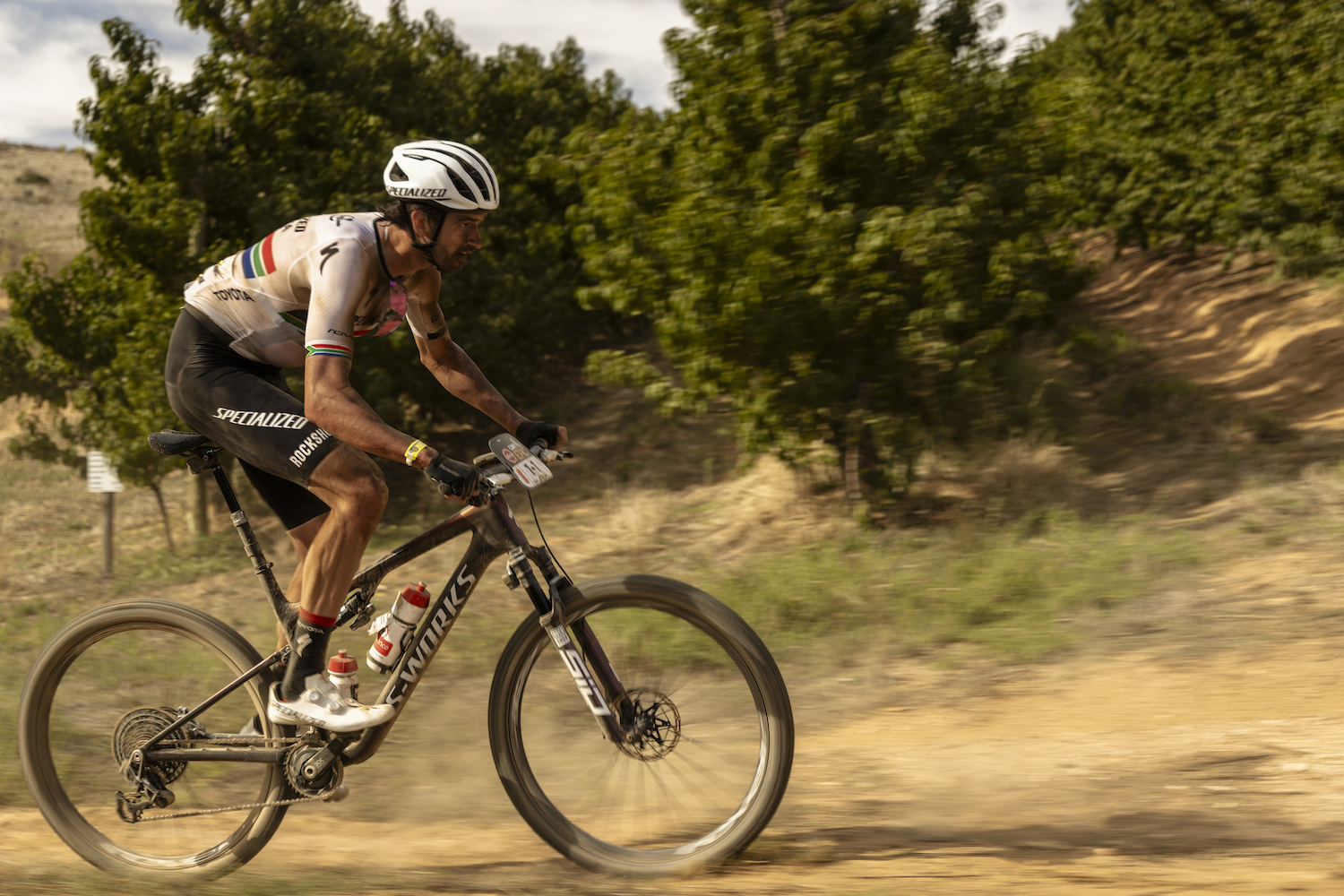
You and Howard appear to have gelled really well despite your obvious physical differences. Did this take some time or were you into the groove quite quickly?
Howard is my teammate this year on the (International) Specialized Off-road Team. I have hung out with him quite a bit in America in the past two years, so I already knew him well. That’s why I asked him if he wanted to take on this challenge – with no pressure. I just told him ‘we go out there and we do our thing. It’s Cape Epic, no one knows what can happen.’ I do believe he can win it. I told him that.
Howard is an engine. He’s one of the most talented riders in the world. He’s an absolute animal. Lots of people forgot about him. You don’t win the Cape Epic once on luck. You never win Cape Epic on luck, as much as people think you do. We get on really well. We are both pretty calm and we have similar views on things. I like the way he is as a person and I think that really helped.

Riding together was a bit tricky at first. The first two stages we had issues. He crashed on the first stage twice and then I crashed at the end of that stage. I carry a lot more momentum than him, being about 20 kilos heavier. He’s 61kg and I’m like 81kg or so. Through corners I carry so much momentum and he really has to pedal through. I would keep leaving gaps. I know how to corner on these places, like the vineyard roads. On downhills, I just start picking up speed and he doesn’t; and carrying momentum up small kickers. He figured out he had to take a few more pedal strokes before coasting than I did. With positioning, he learned he had to be fighting for position at the front where it’s a lot easier and a lot less risky. Howard is a smart man. He works it out really quick. He got into the groove really fast considering he’s been out of the game for quite a long period. It’s not easy to just get back in and start fighting for a Cape Epic win. I was really, really impressed with him.
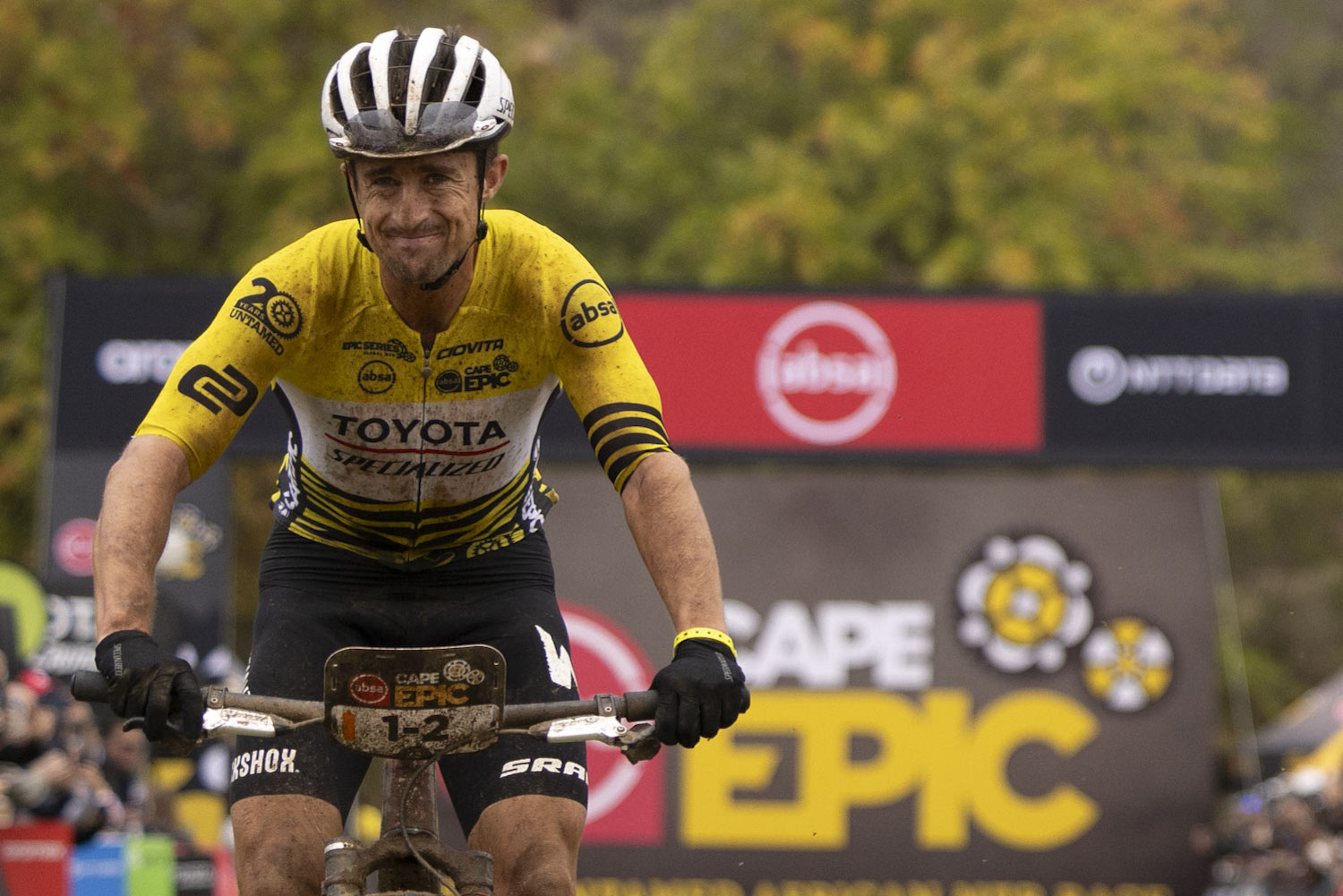
You seemed to be in control on all but the final stage. You mentioned a stomach issue on the night before the last stage…
Yeah, I had a pretty rough night before that last stage. A stomach bug eventually got me, but not super bad. Just having to go to the bathroom all night. I did have pretty bad stomach pain and aches and struggled to eat in the morning. It carried on after the race had finished. It wasn’t bad enough to draw all the energy out of me though. I felt flat but it could have been because we had just raced our arses off for the previous seven days.
Was this and the wheel issue in Tulbagh your only challenges, or were there others that were managed without alerting your rivals?
We had that wheel issue and the first day when Howard crashed twice. He actually crashed really hard both times. I think he was in a bit of discomfort. Those were the two worst luck incidents. With the wheel we got lucky with the tech zone where it happened. Luck comes in its own ways at Cape Epic. Even though it was bad luck to damage a wheel we were super lucky it wasn’t as bad as it could have been.
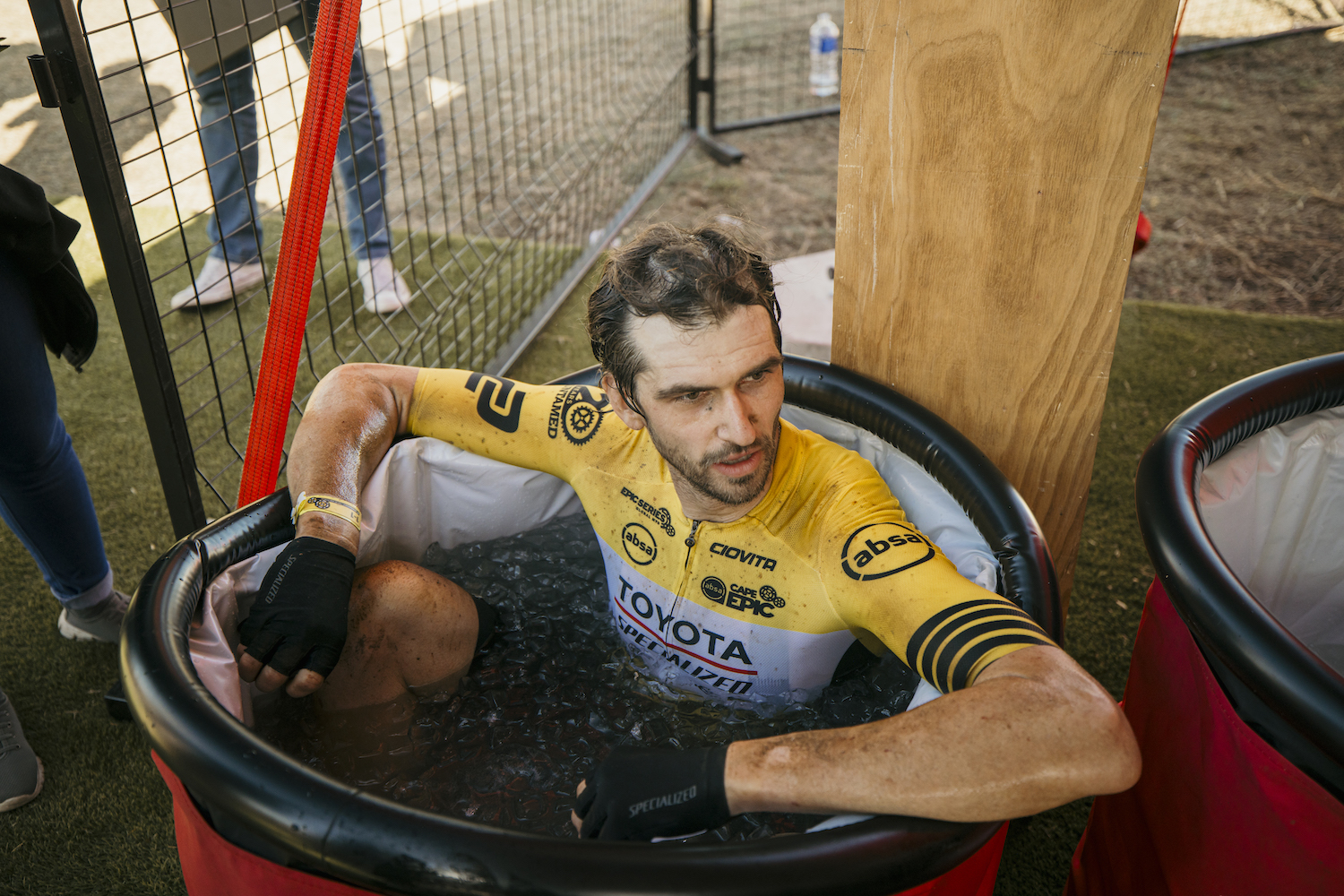
Alleman and Becking’s challenge was fierce early on. Were you concerned about them at all, or did you feel they would fade?
I knew Alleman and Becking were strong. I had followed their pre-Cape Epic races such as Mediterranean Epic and a few other races and I could see that they were on really good form. They also gel well together. That makes a difference also. I knew with the heat that they might fade, depending on how well they prepared. That third stage, the transfer stage to Wellington, it was pretty hot in the valley, but I knew it would get a lot worse. They were panicking and not dealing with it well. So I kind of knew in the next two days we could really capitalise on that. And we kind of did. You just have to really focus on your rivals and figure out where there are cracks.
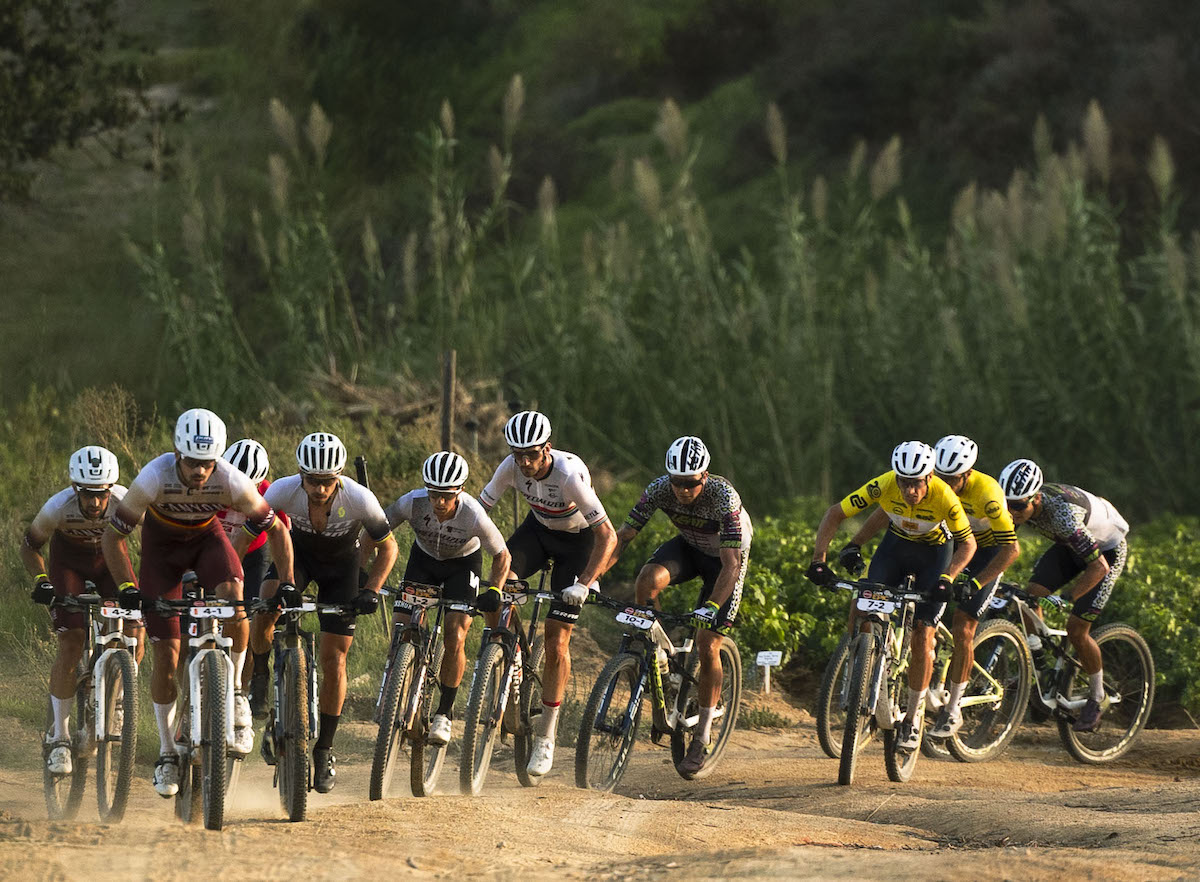
Schurter and Fini managed their mechanicals pretty well to limit their time losses. Were you concerned about them going into the final three days or could you tell Fini was faltering?
Nino and Fini did a great job. They also had back luck at bad times. They spent a lot of days chasing. They had a really good prologue. I have won three prologues now. I think it kind of burns you out a little bit. This was the first year that I did a prologue where I wasn’t on the limit. I definitely think it helped, so there’s something to that. And they chased all day. I mean we are riding hard at the front, not trying to keep away, just, well, it’s the Cape Epic and you just ride hard the whole bloody time. The pace is high at the front. They basically had three days of chasing and charging that eventually does catch up with you, especially in the heat. When we started to see Fini crack a bit we took full advantage because we didn’t know if he would bounce back. These cross-country guys sometimes bounce back and can put big time into you the next day, so we just put in as much time as we could while he was not feeling great, in the chance that he could come back swinging the next day.
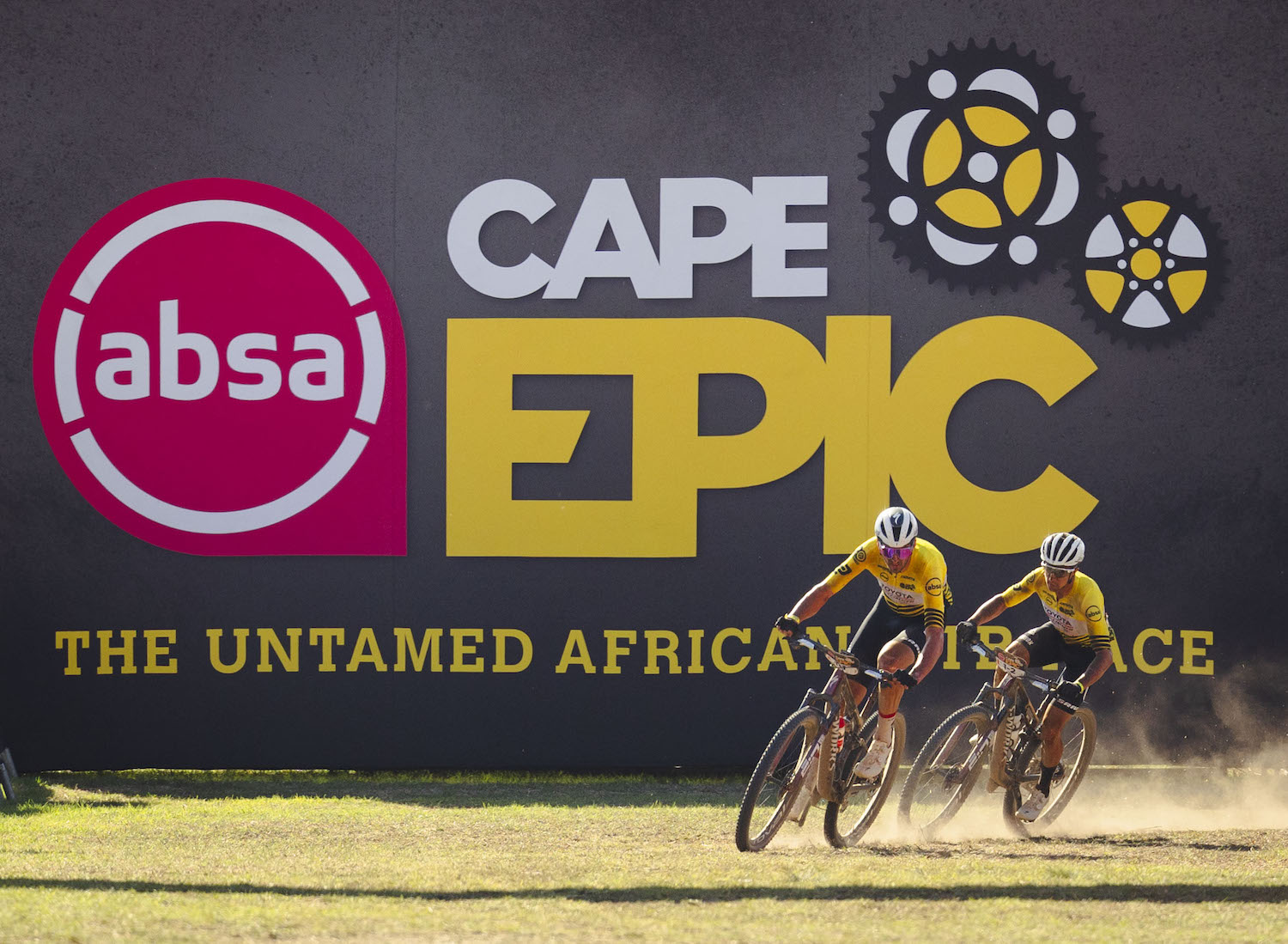
Were there any moments where you felt you might not win this edition of the Cape Epic?
I don’t think we ever thought we couldn’t win. We were always within under three minutes of the leaders. Just by assessing our strength, I knew that we were one of the strongest teams – if we could keep it consistent. We also seemed to have better endurance, which could be from the gravel racing. I think it’s definitely helped our endurance. From last year, being eight minutes down on the first stage, we clawed our way back up by just finishing in the top three every day after that, I knew it was possible if we were only two minutes or so down.
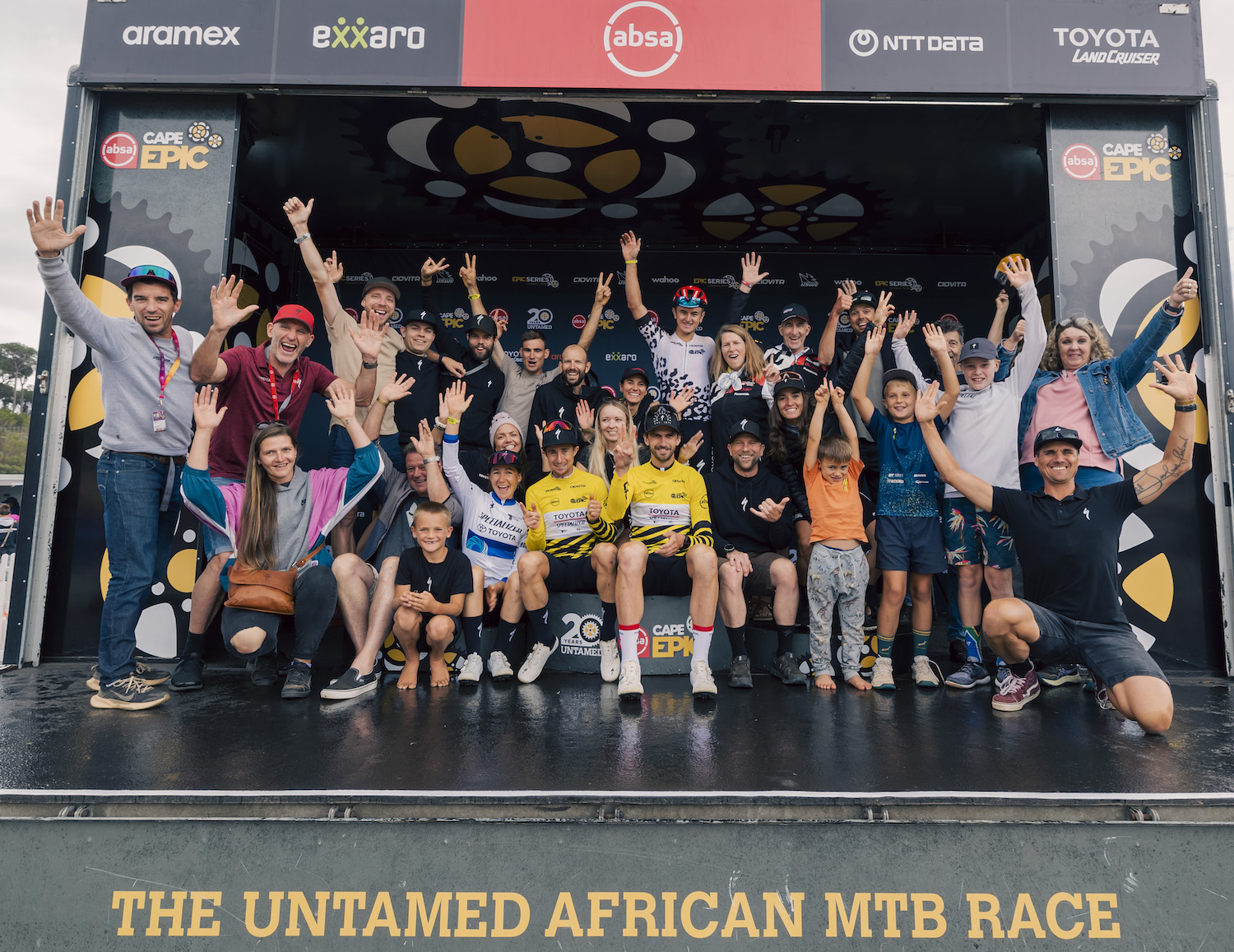
Your Specialized crew has great experience knowing how to create an environment for Cape Epic victories. Please name the people that were on this team so we can give them recognition too.
We had a massive crew – mechanics, soigneurs, chefs, managers and more. Our squad started from Bennot Willeit, the team manager. He just did everything from a planning and handling perspective. We had Mike Postumus, who was also racing, but he went through the stages with us every evening, breaking down the stages for us, water points, key segments. The soigneurs, Cullum and Werner took care of us after the stage, cleaning bottles, making sure if we have any problems, they’re taken care of. Then Chris – mine, Howard and Sofia’s mechanic on the Specialized Off-road Team and then Nick, who is our Toyota Specialized mechanic for me, Johan and Alex in South Africa. Todd from SRAM, who basically helped where necessary, particularly with suspension and droppers, making sure our bikes were dialed. Cherise, the team manager for Toyota Specialized, rotating with Niquita who works in marketing at Specialized SA. They helped us clean up after stages, managed our podium bags and took care of media. They did a massive job – two great women that really helped tremendously throughout the week. Then our chefs, Pat and his crew from Foods Performance. Four of them in total, who did a massive job. We had all types of the best food you could ask for every day. Great variety, clean and tasty food. They were up at 3am making oats and pancakes for us to eat before the stage. And then they were the last to bed at night. Videographers were Ray Cox who also takes great photos; Ettiene and his staff. My Dad, my fiancé and her parents – a truly massive crew to make sure we had everything we needed. A huge village without whom we couldn’t have competed for the win.
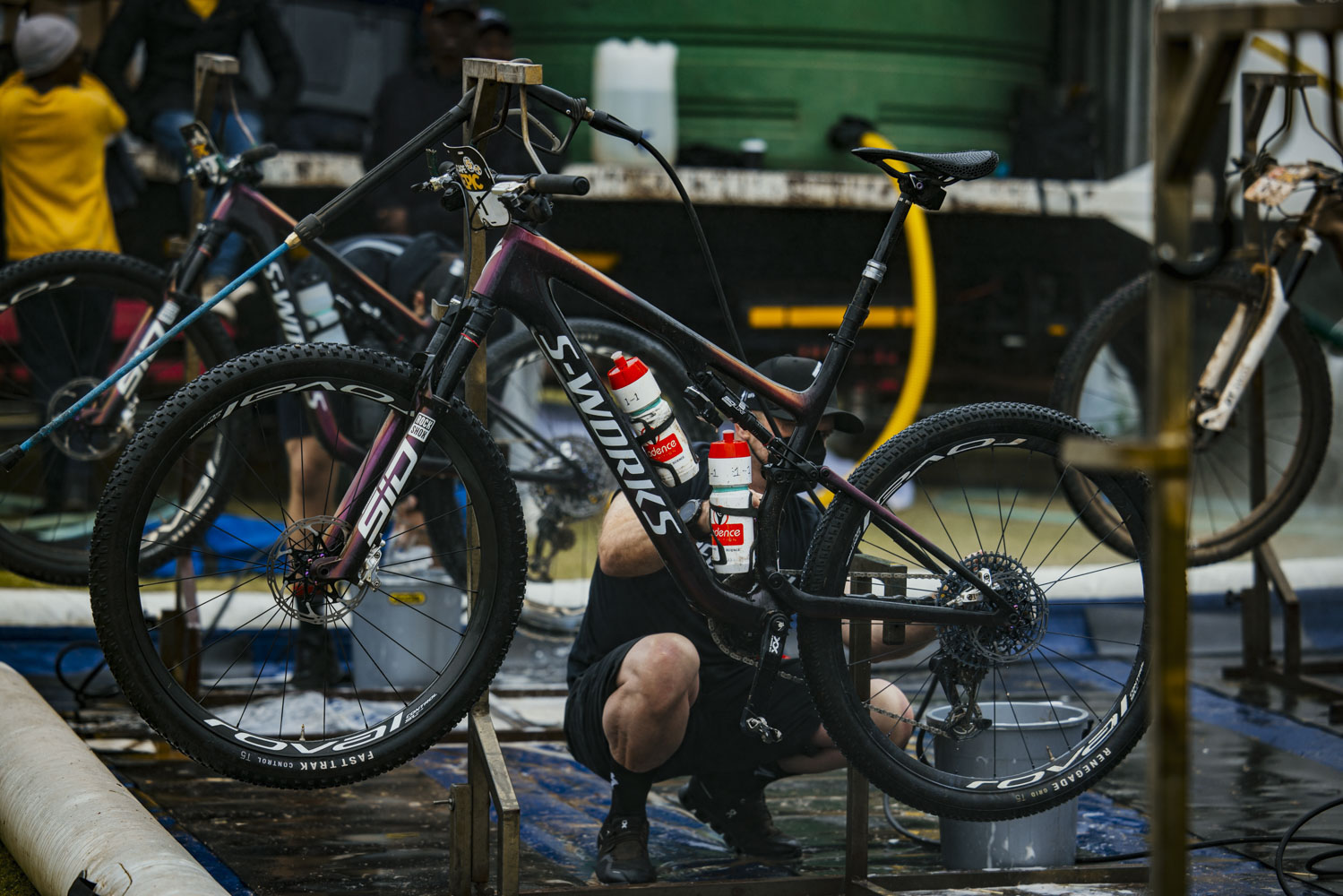
Now that you have won three, do you intend to take aim at five to match the likes of Platt, Sauser and Langvad?
I have been asked this question. Maybe four would be good. Then I would be in between. No one stands on four wins. Five is massive! A crazy achievement. Three is unreal, four would be amazing but I will be back until I retire to try and get four. You have to have the right partner a lot of luck, a lot of preparation, not getting sick. My whole build-up for this year’s Cape Epic I was only sick for one day with a 24-hour stomach bug. Out of the 10-12 weeks I missed one day, which happened to be a rest day. But that doesn’t always happen. Consistency is essential. It is tricky to repeat but I will always give it my all. I love this race – it’s a great way to start the season and it means a lot to me. I will always do everything I can to be best prepared for it.
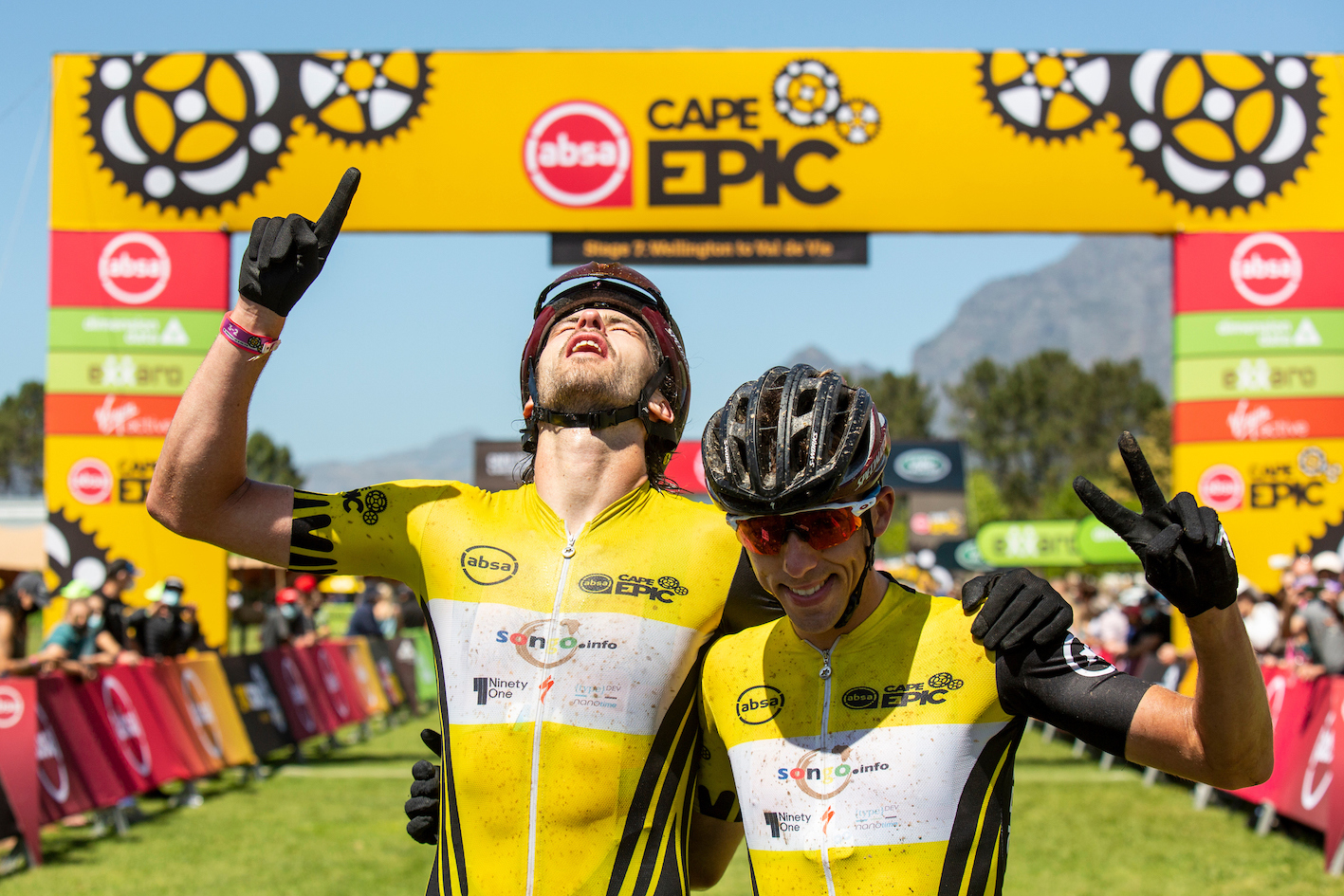
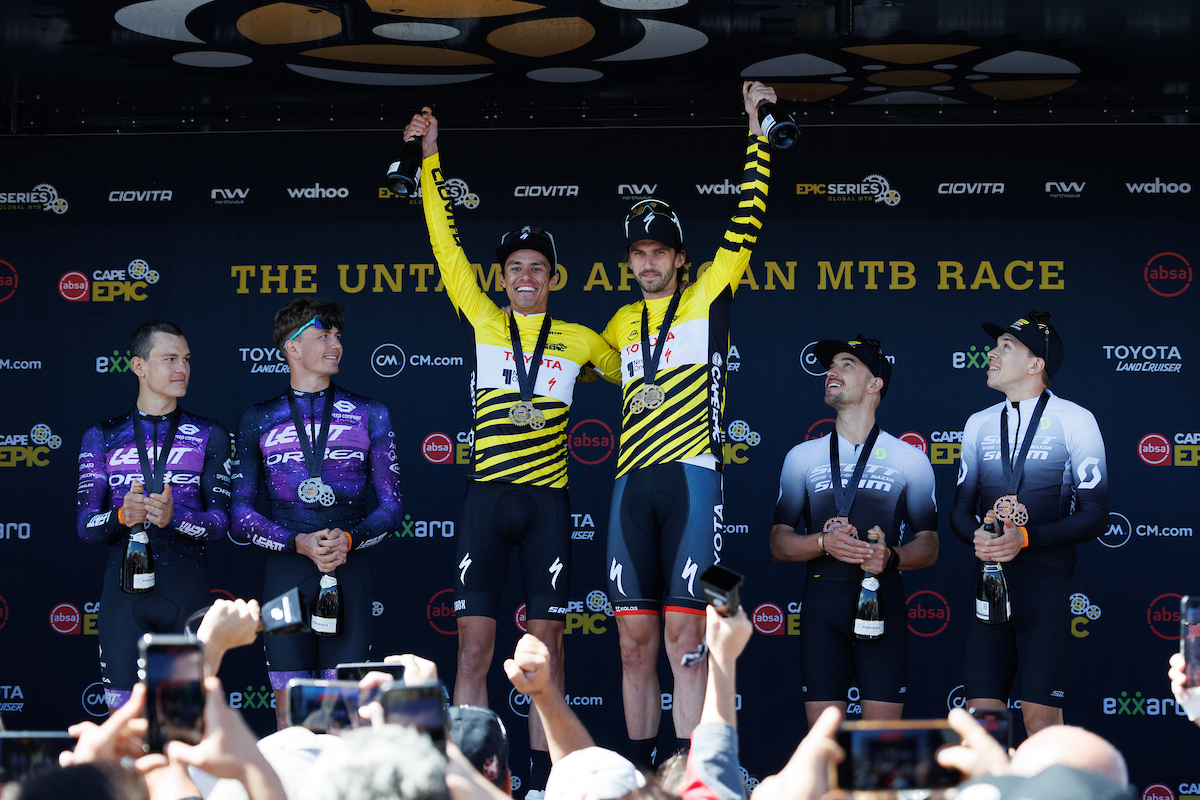
Matt Beers’s Absa Cape Epic record:
2024: 1st with Howard Grotts (two stage wins)
2023: 1st with Christopher Blevins (five stage wins)
2022: 3rd with Christopher Blevins (two stage wins)
2021: 1st with Jordan Sarrou (two stage wins)
2019: 5th with Alan Hatherly
2018: 15th with Nico Bell
2017: 21st with Konny Looser
2016: 22nd with Oli Munnik
